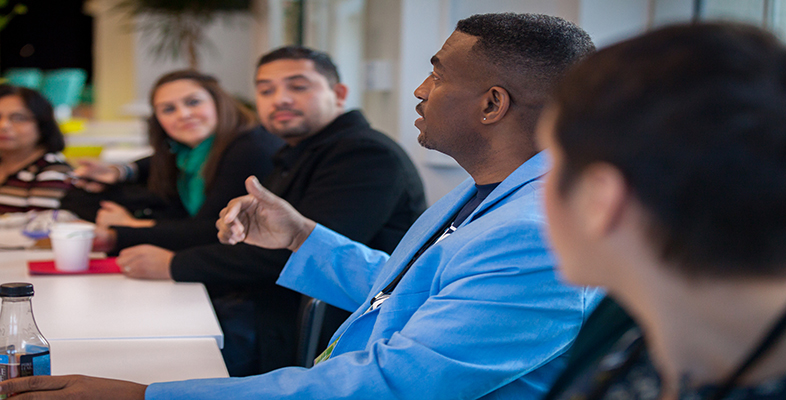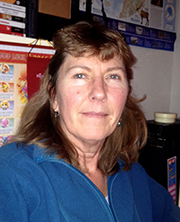Gill Holmes
Multitasking, keeping healthy and maintaining work-life balance are important to Gill, who is a freelance translator based in the UK:
When I sit down in the morning, generally it almost never happens that I don’t have a job on, but the first thing I do is check through my emails, and if I’m looking for work, then I’ll go straight to that, see what’s coming up, if there’s anything I can bid for, or answer any queries.
Then I will get down to whatever it is I’m doing that day, and work steadily. As I’m working I can see emails coming in. I will always check my emails coming in, unless I’m doing a proofreading job, which I’m doing on a timed basis, in which case I won’t check emails because it’s not fair to the client. If something interesting comes up, then I’ll stop working and I’ll go after that job and put in a bid, or write to the project manager saying that I can do the job and negotiate the rate. That’s where you’re multitasking, because you are doing a translation, but you keep switching over to set up your next jobs.
I generally work from about 8:45 am until midday. By a quarter past twelve I’m ravenously hungry. Quite often I just have half an hour for lunch and then get back to work. Work-life balance is very important so on Tuesdays and Fridays I walk to the leisure centre and I swim for half an hour. On Thursdays I walk with Casterbridge Ramblers, so I’ll do a seven or eight miles walk on a Thursday. And then I’ve got my personal trainer. She pops up on my computer screen every hour and gives me three simple exercises. As well as keeping my metabolic rate up, if I’ve been concentrating very hard, I can move around, do the exercises, it just takes three minutes, and it refreshes me.
I generally stop around five to cook supper, and then if I’m not up against a deadline, I’ll just do other stuff in the evening. If I’m up against a deadline, I’ll get back to work after supper. I never work weekends, unless it’s doing voluntary things like for the Nicaragua Solidarity Campaign, if they’ve sent me something I’ll do it but that’s not work… I try to save weekends for family time. I do my invoicing generally on a Friday after I’ve stopped working. It makes you feel good, thinking ‘I’ve earned all this money!’ even though it’s such a tedious task.

